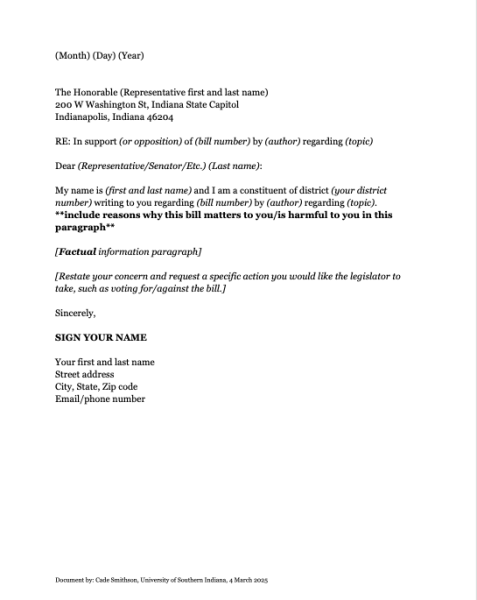In an era of memes, viral tweets, TikTok, writing to your representatives might seem a bit outdated. Why send an email or a letter to your representative when you can hit the ‘repost’ button—you’re still getting your point across, right?
Well, maybe not as much as you think.
Despite all the digital noise and media attention, directly reaching out to your representatives remains one of the most powerful and effective tools for civic engagement.
Politicians may seem distant, but they are responsible for voicing concerns of their constituents. And you, the voter, are ultimately responsible for holding them accountable. Whether you are advocating for a local issue or a national issue, direct communication to your elected officials keeps them accountable and reminds them of who they are supposed to serve. This is something that has ‘gone grey’ in recent history.
Reposting a political take or even signing a petition, which can be steps forward, rarely changes policy. Lawmakers do not make their decisions based on what is trending; they respond to direct pressure from their voters. If you want to be heard, repost the thread, but take the next step in drafting a letter to your representative.
While social media can amplify voices, it can also drown them in a sea of misinformation. A phone call, email or, most important, a letter will cut through the noise and land directly in the office of the person elected to serve your community. Again, legislators pay attention when you directly communicate with them. Congressional offices keep track of the volume and the topic of the message they receive– so, bring a friend.
Why letters? As someone who has voiced my opinion to representatives in the past, legislators appreciate letters because it shows you are serious and deeply care about the topic. Oftentimes, a well-written, completely factual, letter outlining concerns about education, climate policy, healthcare, or any other issue has the potential to influence hearings, votes or even draft new legislation.
Writing to your representatives might seem like some ‘old-fashioned courtesy,’ it truly is a way to advocate for yourself and your communities. Remember, democracy requires participation. Elections are not the only time that you have a say in government. Democracy is an ongoing process, and exercising your First Amendment right to use your voice is a crucial part of it.
Here is an outline of a drafted letter to an Indiana legislator:

Addition resources that may be helpful in your letter:
Indiana General Assembly website— bill numbers, legislators, etc.
Indy.gov— Indiana congressional district map

